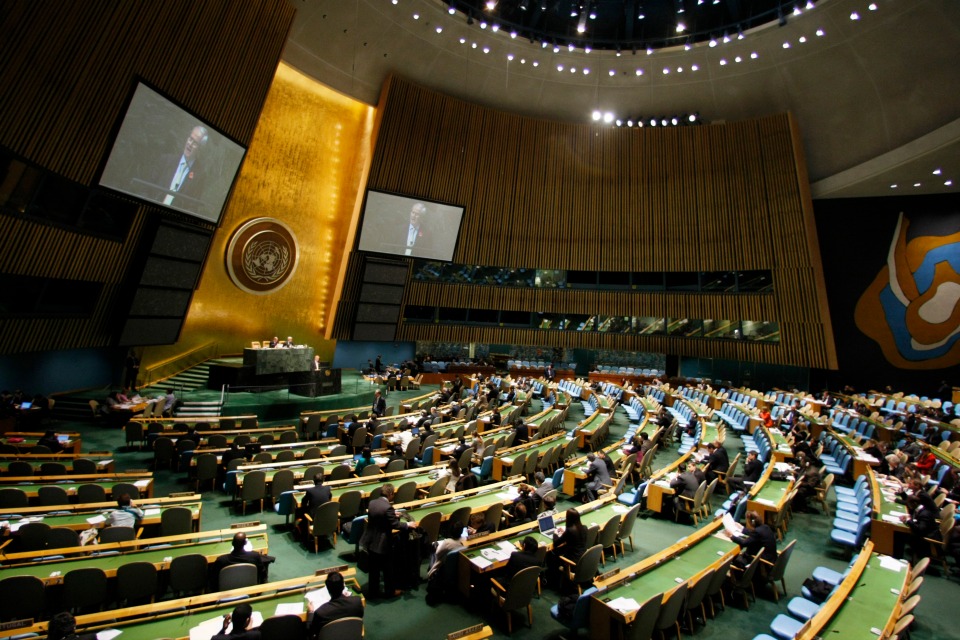Security Council reform: The UK supports new permanent seats for Brazil, Germany, India and Japan, alongside permanent African representation
Intervention by Ambassador Lyall Grant of the UK Mission to the UN to the General Assembly debate on Security Council Reform

Mr President
Alongside the overwhelming majority of member states here today, the United Kingdom is grateful for this opportunity to reaffirm publicly our strong commitment to reforming the UN Security Council.
The United Kingdom warmly welcomes the appointment of Ambassador Rattray as the new chair of the Intergovernmental Negotiations. I pay tribute to his predecessor, Ambassador Tanin, who worked tirelessly to establish a common position from which to move forward together. We thank him for his concerted efforts which have provided a foundation for the progress we must all work to achieve. We look forward to working closely and productively with Ambassador Rattray and hope that his appointment will invigorate the process and lead it towards an agreed outcome.
Mr President
You are all familiar with the United Kingdom’s position on Security Council reform. It has not changed. The United Kingdom supports new permanent seats for Brazil, Germany, India and Japan, alongside permanent African representation. We also support a modest expansion in non-permanent seats. Next year, we will celebrate the 70th anniversary of the UN and the 10th anniversary of the Summit Declaration. Let us mark these occasions with genuine action on reform.
Mr President
Disagreement around whether or not to extend the veto rights has proven one of the key obstacles to making any progress on UN Security Council reform. A priority for all of us must be to ensure that any reform does not reduce the Council’s capacity to effectively deal with threats to international peace and security. The UK does not support the extension of veto rights to new permanent members. We note with interest the French initiative for voluntary P5 veto restraint and welcome the motives that lie behind this as well as the valuable debate it has sparked. We have been appalled by the cynical way in which the veto has been used since 2011 to enable the perpetuation of mass atrocities and war crimes by the Syrian regime. We cannot envisage the circumstances in which the United Kingdom would use its veto to block an appropriate response to a mass atrocity or other major crisis. To be meaningful, this initiative would of course need the united support of all the permanent members of the Council.
It is important that arguments on contentious issues such as the veto are heard, but we also need to be careful to ensure that the range of different and opposing views around the veto should not distract us from the important task of broadening the membership of the Council to ensure it is a better reflection of the modern world.
Mr President
Let me finish by reaffirming the United Kingdom’s commitment to improving the UN Security Council’s working methods. Improving the Council’s effectiveness must go hand in hand with any discussion around increasing its size. The United Kingdom works hard to ensure that the Council is continually looking at new ways to improve in efficiency, effectiveness and transparency, including through using technological advancements. We are always open to new practical suggestions for improvement and welcome the constructive spirit in which the ACT group has engaged in discussions on the Council’s working methods.
Thank you Mr President